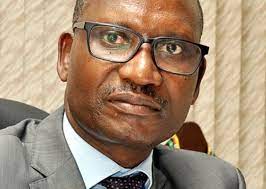TRANSPARENCY: CoST Uganda Commissions 2nd Infrastructure Transparency Index
BY PATRICK JARAMOGI
KAMPALA, Uganda|SHIFTMEDIA| Have you ever wondered what challenges medics face daily? But as you walk into the new Mulago Specialised Women and Neonatal Hospital, you will get the chance to experience it all.
A walk through the state of the art hospital $25 million (Ugx91b), with nice wards, reveals the untold stories the nurses, midwives, and doctors face as they do their work, day in day out.
The fact that they have not received their allowances since January 2020 is heart-pounding, and adrenaline pumping as well. As the COVID-19 cases rise daily, there is a need for worry should the medics planned strike take center stage.
The 450-bed hospital constructed with loan support from the Islamic Development Bank was commissioned by President Yoweri Museveni two years ago.

It offers specialized health care in obstetrics, gynaecology and Neonatology services with the latest state of the art diagnostic equipment. The Mulago Specialised Women and Neonatal Hospital was built to improve the quality of maternal and neonatal healthcare services and also decongest Mulago National Referral Hospital.
But two years down the road, the nurses and doctors have started complaining of lack of allowances, despite the facility being a private, and paid for institution.
Though Mulago’s budget has been Ugx14.3 billion out of the needed Ugx100 billion, given the rising patient numbers and COVID-19 cases, this amount remains insufficient. But that notwithstanding, Mulago Specialised Women and Neonatal Hospital is private and patients are highly charged, so why has it taken four months, as medics allege without the allowances coming?

The lean staff at Mulago hospital-about 1900- out of the needed 3,075 leaves a big workload for the few medics employed. The majority we talked too said they work overtime due to increased emergency cases. “Some of our colleagues were taken to handle the COVID-19 section, leaving the remaining numbers with a huge workload. To make matters worse, much as the salaries have been coming, the allowances we used to get were last given in December,” said a concerned Nurse who preferred not to be named for fear of being reprimanded.
“We have several departments, and most are affected, such as the postnatal services, high-risk antenatal care, delivery, family planning, assisted reproductive health care, and the operation theatres,” said a senior Doctor.
During the launch of the facility in 2018, Health Minister Dr. Jane Ruth Aceng said the charges paid by patients visiting the facility would be used to maintain the hospital equipment and to remunerate the highly specialized staff.
Ugandans seeking medical attention are charged Shs50,000 per visit in consultation fees and up to Shs13m for specialized treatment. The charges for inpatients accommodation is between shs80,000- 500,000 (per day), depending on the ward to cater for food, utilities, and linen.
Those receiving Antenatal are charged between 800,000- 1 million that includes at least 8 visits, baseline laboratory tests, two ordinary ultrasound, as well as essential drugs for antenatal.
These charges were arrived at after examining the costs of similar services within the country and in comparison with similar services abroad. The services at this hospital are classified as Standard, VIP, and VVIP (like the Presidential ward).
What is at stake
The hospital section of reproductive medicine and family planning that provides private patients family planning, embryo hatching, IVF, and Laparoscopy as well as assisted reproduction is overwhelmed.
Most patients were seen not being attended too by the nurses. “We are so tired and demoralized. The doctors are not examining the patients, they have very low morale,” said one concerned patient.
“We come here, pay and seat for hours, and end up not getting treatment. The look in the face of these nurses and doctors is that of disgruntlement, the government needs to intervene,” said another pregnant mother.

A medic who talked to us in confidence said: “We are contemplating striking. We have not received our allowances since January, yet we work overtime, and patients are paying huge sums of money.” “Can you imagine even us in the COVID-19 department haven’t been paid a single allowance since we started working?”
We established that the nurses and doctors have been receiving monthly allowances of between shs200,000 to shs400,000 on top of their paltry monthly salaries depending on the department.
Reasons for the brain drain?
Findings have indicated that the main reason for brain drain is low pay for our health workers. Though the brain drain occurs everywhere, the magnitude of the brain drain differs drastically between countries.
The web of brain drain is very complex, due to the flow of health workers from countries and within countries. Often, the brain drain is caused by a cascade of physician and nurse migration.
President Museveni has during his recent COVID-19 address to the nation urged his technocrats to consider increasing the salaries for scientists, who he described as ‘soldiers’ at the forefront of the coronavirus pandemic.
Officials Decline to comment
Our frantic efforts to get comments for Health Minister Dr. Jane Ruth Aceng, as well as the Permanent Secretary Dr. Diana Atwine were futile, as they didn’t respond to our communications.
Similarly, the Ag. Director Mulago Specialised Women and Neonatal Hospital Evelyn Nabuunya declined to pick our calls.
The Head of Nursing at the facility, Nassuna Benedict, when approached said: “I have not seen any one on strike they should use proper way of communication not from your platform. May be to inform you each one is entitled for a salary which they get monthly, allowance is given if it is available.
“Head of Administration Ms Mary Kabugho declined to comment.








